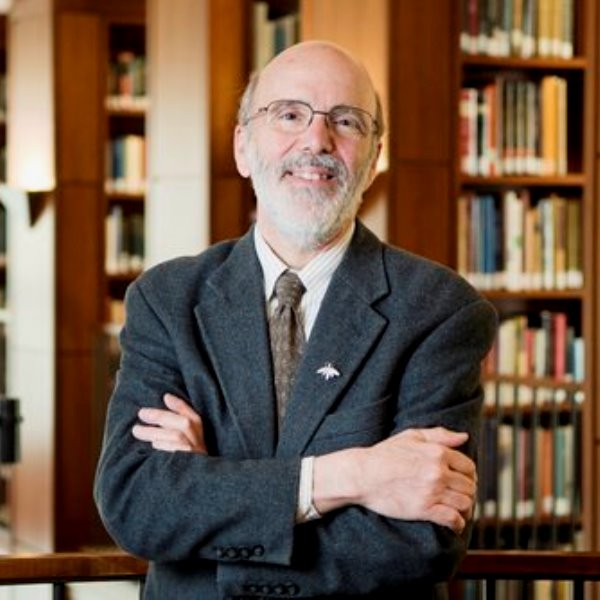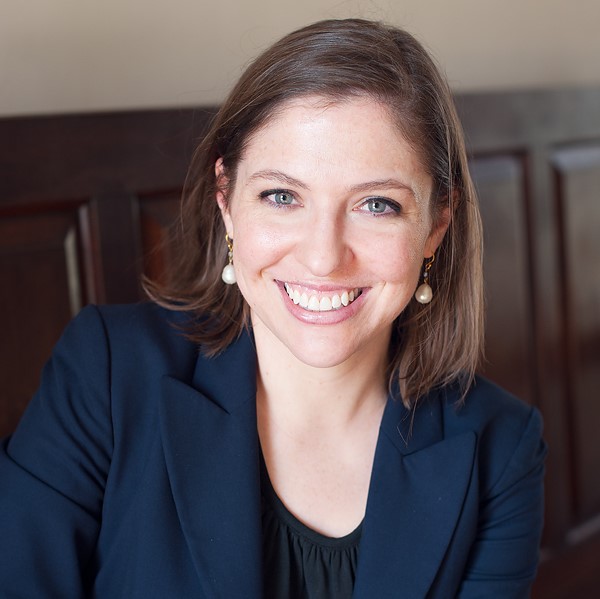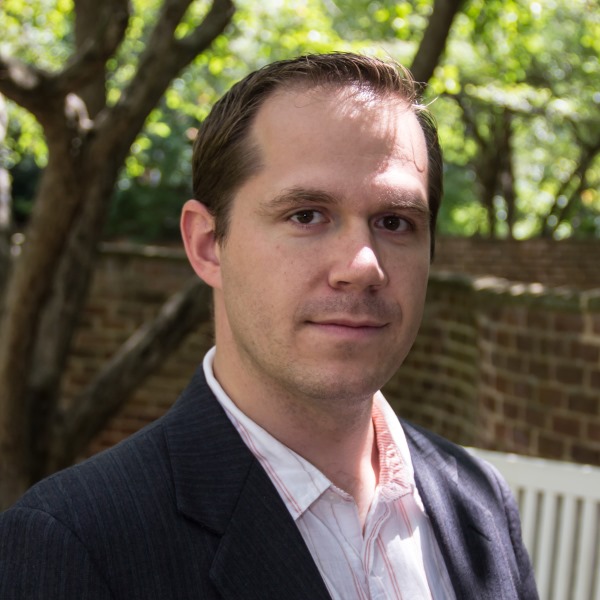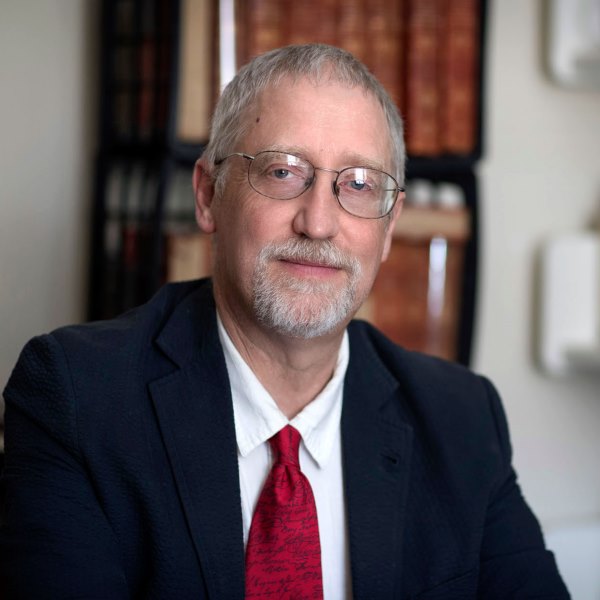As America faces challenges to democracy itself, it is easy to forget that the structure of our nation was not a given but has been developed over centuries. Decisions made and ideas promoted at the very beginning of our country were enormously important to the nation that the United States has become, its successes, challenges, and failures. Four Virginia presidents—Washington, Jefferson, Madison, and Monroe—four of the first five presidents under the Constitution, had an outsized role in crafting those systems, defining the nature of early America, grappling with race relations, expanding the frontiers, and engaging foreign relations in ways that continue to have an immense influence on our nation.
This virtual spring symposium will include a knowledge leader discussing each of the first four Virginia presidents and how they grappled with the problems associated with birthing a nation and creating and maintaining a democracy.
George Washington: Lindsay Chervinsky, Center for Presidential History, Southern Methodist University & School of Media and Public Affairs, George Washington University
Thomas Jefferson: John Ragosta, Robert H. Smith International Center for Jefferson Studies, Monticello
James Madison: Tyson Reeder, Papers of James Madison, University of Virginia
James Monroe: Nicholas P. Wood, Department of History, Spring Hill College
Alan Taylor, Thomas Jefferson Foundation Chair in the Corcoran Department of History, College and Graduate School of Arts & Sciences, University of Virginia, will moderate these four discussions and engage issues across those presidencies.
On the final day, the scholars will convene as a panel to discuss early American and modern questions.
Virtual Symposium
April 12, 18, and 19, 2023
FREE
Open to All
Registration will close at midnight on April 1, 2023.
By registering for this program, you will receive the video recordings of the lectures and panel discussion.
FACULTY LEADER
 John Ragosta
John Ragosta
Interim Saunders Director, Robert H. Smith International Center for Jefferson Studies at Monticello
John Ragosta, the Interim Director of the Robert H. Smith International Center for Jefferson Studies at Monticello, has taught law and history at the University of Virginia, George Washington University, and Hamilton, Oberlin, and Randolph Colleges. He is the author of Religious Freedom: Jefferson’s Legacy, America’s Creed (UVA Press, 2013), and Wellspring of Liberty: How Virginia’s Religious Dissenters Helped to Win the American Revolution & Secured Religious Liberty (Oxford University Press, 2010). He is co-editor of The Founding of Thomas Jefferson’s University (UVA, 2019).
Ragosta’s forthcoming book – For the People, For the Country: Patrick Henry’s Final Political Battle – will be released by UVA Press in 2023.
 Lindsay M. Chervinsky
Lindsay M. Chervinsky
Senior Fellow, Center for Presidential History, Southern Methodist University; Professorial Lecturer, School of Media and Public Affairs, George Washington University
Lindsay M. Chervinsky is a Senior Fellow at the Center for Presidential History at Southern Methodist University. She is the author of the award-winning book, The Cabinet: George Washington and the Creation of an American Institution, co-editor of Mourning the Presidents: Loss and Legacy in American Culture, and is working on a forthcoming book on John Adams. Chervinsky regularly writes for public audiences in the Wall Street Journal, Ms. Magazine, The Daily Beast, The Bulwark, Time Magazine, USA Today, CNN, NBC Think, and the Washington Post.

Tyson Reeder
Assistant Professor and an Editor of the Papers of James Madison at the University of Virginia
Tyson Reeder is an Assistant Professor and an editor of the Papers of James Madison at the University of Virginia. He is the author of Smugglers, Pirates, and Patriots: Free Trade in the Age of Revolution (University of Pennsylvania Press, 2019) and the forthcoming Serpent in Eden: Foreign Meddling and Foreign Collusion in James Madison’s America (Oxford University Press). Reeder is also the editor of The Routledge History of U.S. Foreign Relations.
 Alan Taylor (moderator)
Alan Taylor (moderator)
Thomas Jefferson Foundation Chair in the Corcoran Department of History, College and Graduate School of Arts & Sciences, University of Virginia
Alan Taylor is the Thomas Jefferson Foundation Chair in the Corcoran Department of History at the University of Virginia. He previously taught at Boston University and the University of California at Davis. The author of ten books and recipient of numerous publishing awards, Taylor’s William Cooper’s Town: Power and Persuasion on the Frontier of the Early Republic (Knopf, 1995) won the Pulitzer, Bancroft, and Beveridge Prizes. His most recent work, American Republics: A Continental History of the United States, 1783-1850 (W.W. Norton, 2021), won the New-York Historical Society’s Barbara and David Zalaznick Book Prize in American History.
For a dozen years, Taylor served as the faculty advisor for the California State Social Science and History Project, providing curriculum support and professional development for K-12 teachers. In 2002, he won the University of California at Davis Award for Teaching and Scholarly Achievement and the Phi Beta Kappa, Northern California Association, Teaching Excellence Award. In 2016, Taylor won membership in the American Academy of Arts and Sciences, and in 2020 received membership in the American Philosophical Society.
 Nicholas P. Wood
Nicholas P. Wood
Assistant Professor of History, Department of History, Spring Hill College
Nicholas P. Wood is an Assistant Professor of history in the Department of History at Spring Hill College. He earned his Ph.D. from the University of Virginia and has held postdoctoral fellowships at Yale University and the Library Company of Philadelphia. His essays on slavery and politics have appeared in venues such as William and Mary Quarterly, Early American Studies, and the Journal of the Early Republic. His book manuscript, Let the Oppressed Go Free: The Revolutionary Generation of American Abolitionists, is forthcoming from the University of Pennsylvania Press.
Wednesday, April 12, 2023
12:00 PM - 1:15 PM EDT
Speaker, Lindsay Chervinsky
Lindsay M. Chervinsky will share the unique role George Washington played in creating the presidency and the republic. Unmatched among his contemporaries in fame and reputation, Washington's presence was required for victory in the Revolution, the successful ratification of the Constitution, and the survival of the U. S. Presidency. Chervinsky will discuss with our participants how Washington's choices and failures shaped the future of the nation and continue to mold our political culture and divisions today.
Wednesday, April 12, 2023
3:00 PM - 4:15 PM EDT
Speaker, John A. Ragosta
The early U.S. presidents from Virginia, especially the first three, are best known for accomplishments other than their presidencies. Both Thomas Jefferson’s and James Madison’s presidencies are often seen as decidedly mixed. While Jefferson is widely credited for the Louisiana Purchase, the Louis & Clark expedition, and success in the Barbary Wars, John Ragosta, Interim Saunders Director, Robert H. Smith International Center for Jefferson Studies at Monticello, will suggest that Jefferson’s most important contribution to the presidency may have been more subtle: how he sought to use the presidency as a vehicle to speak to, and for, all the American people. Combined with the peaceful transfer of power after the brutal election of 1800, this became one of Jefferson’s most lasting legacies.
Tuesday, April 18, 2023
12:00 PM - 1:15 PM EDT
Speaker, Tyson Reeder
Over the course of the U.S. Founding, nobody had a more sustained impact on the U.S. presidency than James Madison. Madison’s presidency is perhaps most remembered for his ignominious flight from the capital at the burning of Washington during the War of 1812. Yet his impact on the institution extends from the constitutional convention in 1787 until his retirement in 1817. He helped frame the structure of the executive branch at the constitutional convention, served as an early adviser (almost akin to a prime minister) of George Washington, played an instrumental role in shaping the ideologies that defined Jefferson’s presidency, and finally assumed the presidential office. Madison influenced the U.S. presidency like he influenced much of early U.S. politics: subtly but profoundly.
Tuesday, April 18, 2023
3:00 PM - 4:15 PM EDT
Speaker, Nicholas Wood
Nicholas Wood will examine the fourth and less well-known of the Virginia presidents. James Monroe fought in the War for Independence and had a lengthy political resume by the time he was elected president in 1816. He presided over a period of optimism and nationalism following the War of 1812, dubbed by contemporaries as "The Era of Good Feelings." Yet his presidency also included the Missouri Crisis of 1819-1820, in which northerners and southerners debated the fate of slavery in the West and warned that the nation was on the brink of collapse. Wood and our symposium participants will examine Monroe's personal and political connections to slavery and his role in the Missouri Compromise, which left both sides bitter but preserved the union and delayed civil war.
Wednesday, April 19, 2023
3:00 PM - 4:15 PM EDT
All speakers will discuss and take questions.
Alan Taylor will moderate this panel discussion and each of the lectures.
April 12, 18, and 19, 2023
Virtual Symposium
FREE
Open to All
Registration will close at midnight on April 1, 2023. No refunds.
By registering for this program, you will receive the video recordings of the lectures and panel discussion.
THOUGHTS FROM THE LAWN
The Thoughts From the Lawn blog features posts by UVA faculty related to upcoming lectures, books written, educational events, and research conducted on relevant topics. Join the discussion and share your thoughts.